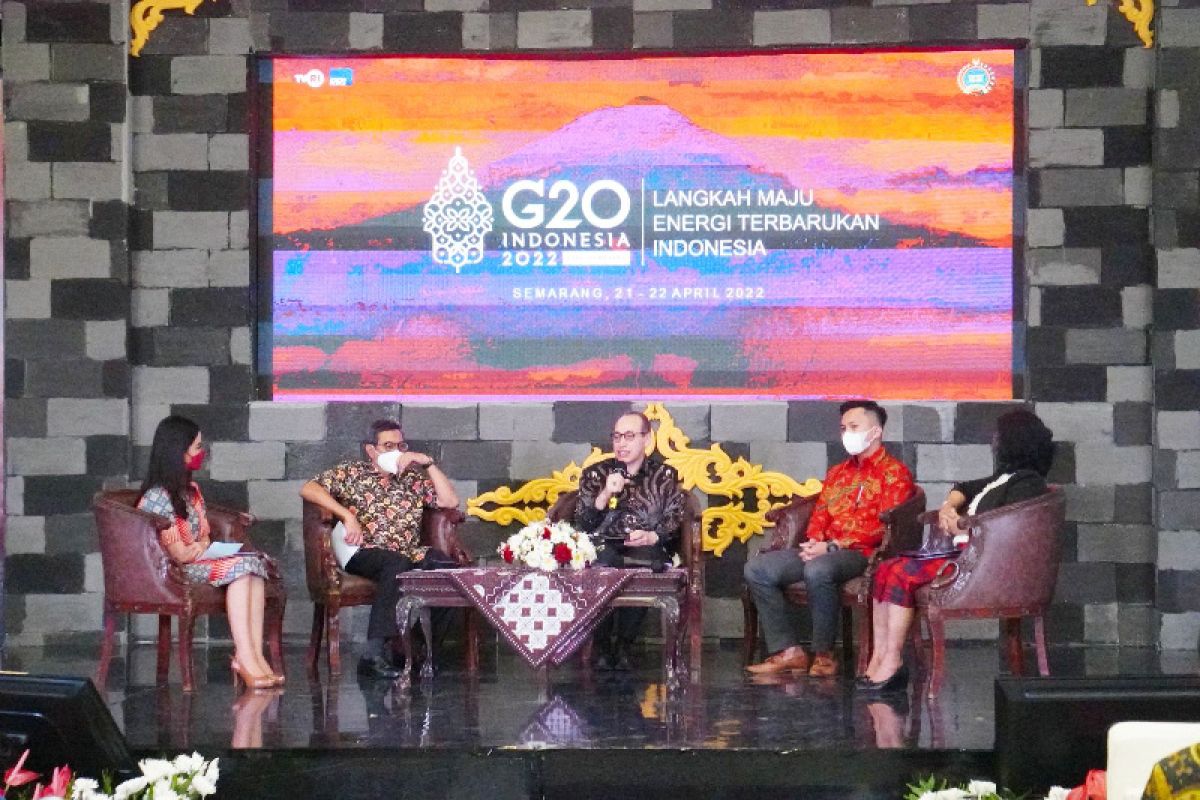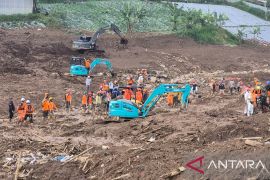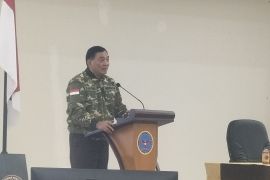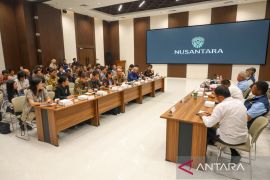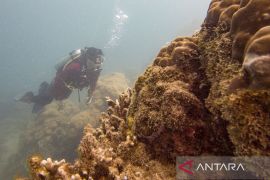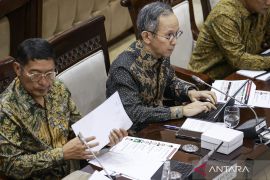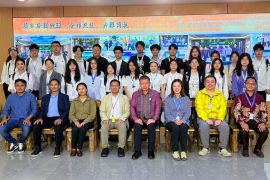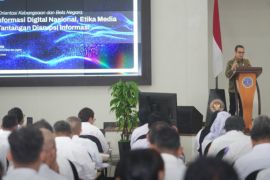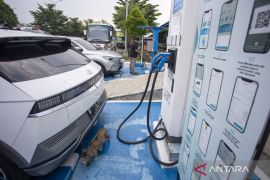Every Indonesian research can download the data free of price by only citing the sourcesJakarta (ANTARA) - When the first COVID-19 patient was confirmed in Indonesia in March 2020, experts used several health-related terms, such as genome sequencing, while discussing the matter.
The general public became more familiar with the term genome sequencing following the emergence of the COVID-19 variants, comprising Delta and Omicron and its sub-variants, such as BA.2.
Genome sequencing is conducted to know whether mutation occurs in the SARS-CoV-2 virus.
Whole Genome Sequencing (WGS) can be conducted to determine the nucleic acid sequence of a genome. On account of the importance of WGS, the Health Ministry recently began distributing its machine to several laboratories in Indonesia.
In COVID-19 handling, genome sequencing produces the SARS-CoV-2 virus genome data to obtain the characteristics of the virus.
This data is also beneficial for the development of medicines and vaccines in the global handling of the COVID-19 pandemic.
The importance of genome data in the health sector also became one of the factors that drove Indonesia to encourage strengthening the genome sequence data sharing global platform during the G20 Presidency.
G20 is an international forum made up of 19 nations that work together to handle various major issues, with Indonesia chairing this year's forum.
Related news: Government to expedite COVID-19 vaccination at South Sumatra's prisons
This strengthening measure was one of the matters under discussion pertaining to reformation of the global health architecture.
Health Minister Budi Gunadi Sadikin highlighted the importance of the sequence data sharing platform being accessible to all parties on account of the fact that quick response is necessary to handle the pandemic.
Improving the capacity to handle potential pandemics in future is necessary to effectively and quickly prevent, detect, and respond to various existing issues.
Sadikin noted that the importance of strengthening the genome sequence data sharing platform, among others, is based on the experience when COVID-19 emerged in Wuhan, China.
The data from genome sequencing uploaded during the period can then be accessed by researchers across the world, thereby contributing to the development of COVID-19 vaccines.
The SARS-CoV-2 genome sequence allows researchers across the world to further analyze the virus and know in detail how the virus can cause a disease.
In one of the G20 events in February, Sadikin noted that the data sharing platform should be free from geopolitical and economic interests and instead be focused on the humanitarian goal of saving lives while confronting the pandemic potential in future.
Earlier, the global initiative concerning open access for the influenza virus genome data had been realized in the form of the Global Initiative on Sharing Avian Influenza Data (GISAID) in 2008.
Related news: Booster vaccination coverage reaches 37.45 million
This step was taken in response to the spread of the H5N1 virus that causes avian influenza.
At the start of the GISAID formation, Indonesia supported the existence of the platform that aims to facilitate data exchange on avian influenza.
The GISAID platform can be used by anyone as long as they confirm their identity and comply with the database access agreement.
This is done to prevent users from sharing the data with other parties that do not agree to the conditions for utilizing the GISAID data.
GISAID currently has the largest collection of SARS-CoV-2 sequence data in the world, starting from the complete genome data of the virus in 2020.
Until mid-April of 2021, there were 1.2 million submissions of data related to the virus from hundreds of nations.
In April 2022, more than 10 million virus genome sequence-related data had been accumulated.
Related news: Some 400.5 million COVID-19 vaccine doses administered in Indonesia
Data sharing
The importance of data sharing was also echoed by virologist I Gusti Ngurah Kade Mahardika, who noted that Indonesia benefits immensely from genome sequence data sharing.
Indonesian researchers can not only obtain the products from the research conducted based on the shared genome sequence but also access the genome data diversity.
"Every Indonesian research can download the data free of price by only citing the sources," Mahardika explained.
In particular, he pressed for greater involvement from Indonesia on the genome data sharing platform since Indonesia's contribution in data sharing has not been optimal.
From the 10 million SARS-CoV-2 sequence data that exists, Indonesia contributes only 10 thousand to 20 thousand. This sub-optimal contribution also applies for other categories, he remarked.
To this end, he highlighted the importance of bolstering Indonesia's role in genome sequence data sharing.
This can be achieved by changing the nation's mindset and internalizing the importance of data sharing to open access for other global researchers.
However, developing and creating diverse genome sequence data requires large funding. This is problematic since several Indonesian researchers receive inadequate research funds.
"There will not be many, who can produce such data," he remarked.
Related news: Gov't makes booster shots mandatory for Eid homecoming travelers
He also underlined the importance of ethics, so that the results of the individual genome sequence data can be uploaded onto an international database.
Indonesia's data contribution to the international database is not yet optimal since it is not mandated for journals in Indonesia to be uploaded onto the international database.
Based on the benefits that can be garnered through the genome sequence data sharing practice, the importance of strengthening the data sharing platform, which Indonesia seeks to encourage, can be seen.
This is done for the sake of quick decisions and responses to save lives amid potential pandemics in future.
Related news: Ensure Eid al-Fitr exodus travel is safe for children: KPAI
Related news: Extraordinary surge in passengers at Merak Port: Minister
Editor: Fardah Assegaf
Copyright © ANTARA 2022
